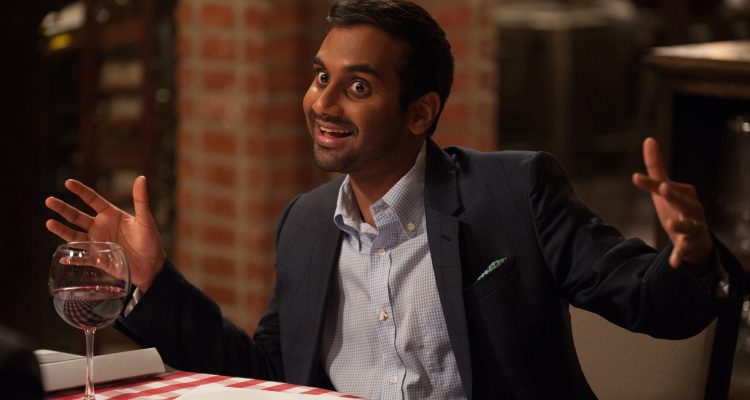The Bingeworthy Breakdown is an occasional look at new and returning TV shows. An estimated 500 seasons of scripted TV will air in 2017, and we’re here to help you sort the must-sees from the can-skips, because life is way too short, and Peak TV way too crowded, for investing in a show you’re not going to love. This week, we’re going to dive in to Season 2 of Netflix’s “Master Of None,” co-created by Aziz Ansari and Alan Yang, so you can decide if you’re going to give yourself over to it when it airs on May 12th, or whether to spend that time on old episodes of “Columbo,” reading (lol) or, you know, bonding with your newborn or whatever.
Ordinarily you do these “breakdowns” when you’ve only seen a few episodes of the show in question, but here you’ve seen all 10?
Yep, because Netflix, whose generosity is matched only by the attractiveness of their press liaisons, made all episodes available in advance.
READ MORE: The 20 Best TV Shows Returning In 2017
Seems like you should be committing to a “proper” long-form review, then?
Well, actually we’re hoping to do something more comprehensive on it after May 12th once you guys have had a chance to watch it too. Also, yesterday’s bumper feature on the Most Exciting TV Auteurs nearly killed me. Also, shut up.
Ah, yes, “TV Auteurs.” I think you included Ansari?
Certainly did, and season 2 of “Master Of None,” goes even further into an “auteur TV” direction than the laid-back, loosely autobiographical first season.
 How so?
How so?
Ansari and co-writer Alan Yang push the experimentation aspect of the show and with so many different formats and approaches, episodes feel even more standalone. The always inventive and apropos opening titles change from one ep to the next, and the soundtrack, heavy with old euro-pop hits, funk and jazz cuts, is one of the best on TV. This also means that, while the show might be bingeworthy, you might not want to binge it — not because it isn’t moreish, but because there’s no great overriding momentum, and certainly no “I gotta know!” cliffhangers. There is connective tissue, but this is less a novel than a short-story collection featuring the same characters in different scenarios, even different countries and timeframes.
Hm, sounds uneven. Does that mean some eps are better than others?
Emphatically yes. But the show is never less than engaging (certainly for fans of Ansari’s “Louie“-inflected brand of loose-limbed humor that derives its warmth far more from observation and irony than from jokes and punchlines). And while not all the experiments pay off, when they work, they really work. There are a couple of episodes (number 8, and in particular number 6) which I’m pretty sure will be TV highlights for me even at the end of the year.
READ MORE: The 50 Most Exciting TV Auteurs Working Today
Ooh, ooh, tell me about Episode 6!
Well, what happens is [**a couple of heavies from Netflix’s Embargo Enforcement Squad break down the door to the apartment and loom over me menacingly**] I can’t say. But it’s wonderful.
Netflix has “heavies”?
Yes, big guys wearing earpieces who visit terrible retribution, like taking the batteries out of the remote or turning on motion smoothing, if you reveal certain details. Netflix is both a generous and fearsome deity. And attractive.
Ok, but at least tell me the overall premise of the season.
[**checks with Tiny, who puts his hand to his ear and listens. I can see my fear and bad hair reflected in his sunglasses. Eventually he nods and his partner releases the cat.] That I can do! If there is a main arc to the season, it’s the gentle, tentative development of a love interest. It’s a connection that starts as a friendship but incrementally becomes more, culminating in a penultimate, double-length episode that goes full-blown love story, complete with helicopter ride and convenient New York blizzard.
 Aww! I love love.
Aww! I love love.
Not so fast. To be honest, the romance is maybe the least remarkable thing about the season.
You hate love.
I am notorious for that, it’s true, but the romance here is interesting more for its effect on Dev (Ansari) and his friends (plus the often wack counsel they offer) than for itself. When we focus on it directly, the show, while always sweet and sincere, feels a little flat, a little overfamiliar.
And there are no other ongoing storylines?
Of course there are, in particular one monitoring Dev’s career as a performer, which is great and introduces a couple of excellent supporting characters. My personal favorites are his dumbass producer and a celebrity chef impresario played by [**how does Tiny make a simple clearing of the throat sound so loaded?**] someone I won’t name here.
Speaking (or not) of supporting characters, do many of the season 1 regulars return?
Glad you asked, because they do and they’re super. And Dev’s two closest friends, the endearingly overliteral Arnold (Eric Wareheim, who could find deadpan comic depths in a fatal traffic collision report) and lesbian childhood bestie Denise (Lena Waithe) each get episodes that primarily focus on them. In Denise’s case especially (her episode is the terrific no. 8 featuring a sublime turn from a guest actor I personally adore), it fills a void — she felt underdeveloped in season 1, but her episode here, taking place over successive Thanksgivings from childhood, is one of the most touching and most satisfying.

